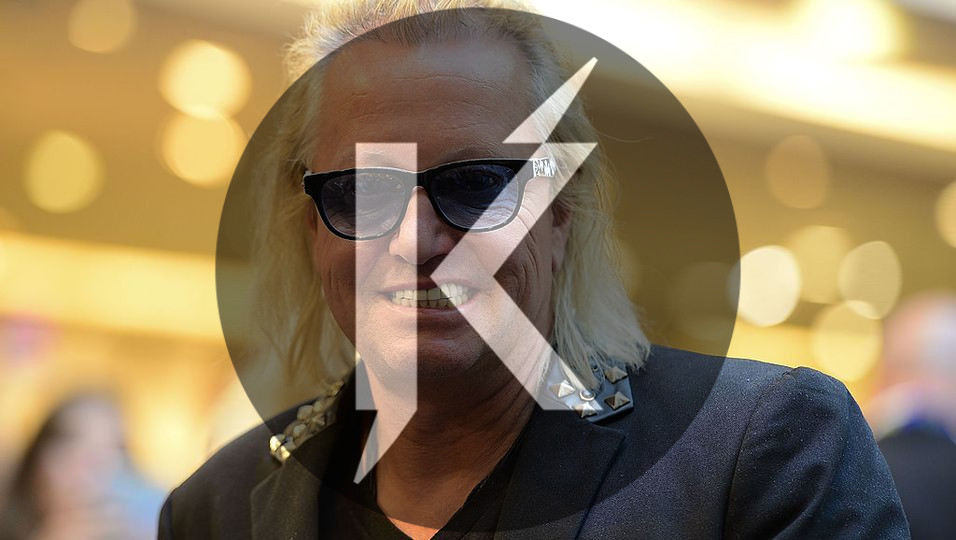In recent years, rumors about the death of prominent figures have repeatedly spread on the Internet, and one of these prominent figures is Robert Geiss, the well-known TV star and entrepreneur. The headlines such as „Robert Geiss deceased?“ caused a stir, and many fans and followers of the well-known TV family were confused. But what is really behind these rumors? Is there any truth to the news, or is it just another Internet rumor? In this article, we will shed light on the truth behind the headlines, the meaning of such false reports and how to recognize them.
Who is Robert Geiss?
Before we look at the rumors surrounding Robert Geiss, it is important to learn a little about the person himself. Robert Geiss was born on January 29, 1964 in Cologne and is best known for the reality TV show „The Geissens – A Terribly Glamorous Family“, which has been broadcast since 2011. Together with his wife Carmen and his two daughters, the show shows the glamorous life of the Geiss family, which is characterized by wealth, luxury and travel.
But Robert Geiss is not just a TV star. He was already successful as an entrepreneur before his time on television. In the 1980s, he and his brother Michael founded the fashion brand „Uncle Sam“, which specialized primarily in fitness clothing. After selling the company, he invested his fortune wisely and used it to further expand his empire.
Origin of rumors: How do false reports spread?
In the digital age, news spreads incredibly quickly. Social networks such as Facebook, Twitter or Instagram play a crucial role in this. Often a single post or tweet is enough and within a few hours rumors about prominent figures have spread around the world. But how do such false reports come about?
In the case of Robert Geiss, the rumor seems to have originated from questionable websites or social media that spread such news to gain attention. Such sites often profit from clicks and the spread of sensational news. Especially when it comes to prominent figures like Robert Geiss, many people are quick to jump on the news without checking the source. Often, such news is accompanied by sensational headlines designed to attract readers, such as „Robert Geiss dead? Shocking details!“ These headlines are often enough to create panic and make the news go viral on social media.
Another reason for the spread of such false reports is the so-called „clickbait“ strategy. Website operators use shocking or sensational headlines to get as many people as possible to click on their articles. Often, however, there is no solid information behind the articles, but merely speculation or completely made-up stories. In the case of Robert Geiss, a similar tactic may have been used to attract the attention of fans and the media.
The effects of such rumors
Such false death reports can not only be stressful for the people concerned and their families, but can also have a strong impact on the public. When a person as well-known as Robert Geiss is falsely declared dead, this has far-reaching consequences. Fans are unsettled, concerned inquiries pile up, and these rumors are often spread unchecked on social networks. But the effects go even deeper:
1. Emotional burden on the family
False reports about the death of a family member can cause enormous emotional stress. Family members not only have to deal with the untruth, but also with the many inquiries from fans, friends and media representatives. Especially in times when such rumors go viral, those affected often have no way of escaping the flood of rumors. They are forced to make public statements and set the record straight.
In the case of Robert Geiss and his family, such rumors could cause additional stress. The Geiss family is often in the public eye anyway, and false reports of this kind can put a strain on private and professional relationships.
2. Loss of trust in the media
If such false reports circulate unchecked, it can also weaken people’s trust in the media and news reporting. When fans and followers of Robert Geiss see unreliable information being spread about their idol’s death, they may also question other news sources. This can lead to a general distrust of news and information, especially in the age of „fake news.“
3. Public confusion
The spread of false information often leads to confusion among the public. When different media and social platforms share different information, people no longer know what to believe. Especially when it comes to deaths of prominent figures, contradictory information often arises, which increases uncertainty even further.
How to recognize and avoid rumors
In times of fake news and constantly changing information, it is more important than ever to be critical of news. Here are some tips on how to recognize false reports and protect yourself from them:
1. Check reliable sources
The most important rule when checking news is to only trust reliable and reputable sources. Large news portals and established media usually have strict guidelines and standards when it comes to disseminating information. When it comes to the news of Robert Geiss’s alleged death, you should therefore first check whether reputable sources such as major newspapers or news channels are reporting on it. If there are no such reports, there is a high probability that it is a rumor.
2. Pay attention to the source of the message
Who spread the news first? Did it come from an unknown website or a dubious source? Many false reports are spread by websites that do not provide a contact information or a clear editorial team. A closer look at the source can often help to assess the credibility of a message.
3. Promote critical thinking
Especially when it comes to sensational reports, it is worth critically questioning whether the news is plausible. Such reports are often exaggerated or completely unfounded. It is advisable to consult several sources and compare the information before accepting a news story as true.
4. Use fact checks
There are now many organizations and platforms that specialize in fact-checking. They check rumors and false reports for their veracity and publish their results. Websites such as „Mimikama“ or „Correctiv“ regularly offer fact-checks on current topics and help to curb the spread of false information.
Robert Geiss is alive – the official statement
After the numerous rumors about Robert Geiss‘ death, the family finally made an official statement. Carmen Geiss, his wife, clarified in a social media post that Robert was in good health and that the death reports were pure false information. She thanked fans for their concerned messages, but also emphasized how stressful such rumors were for the family.
This statement showed once again how important it is not to blindly believe everything that is circulating on the Internet. The Geissens are a public family that is constantly having to deal with rumors and false information. In this case, however, it was particularly serious because Robert Geiss’s own life was at stake.
Conclusion: The responsibility of the media and consumers
The spread of false news is a serious problem in the age of social media and the internet. Especially when sensitive topics such as the death of people are involved, it is important to handle information responsibly. Both the media and consumers have a responsibility. The media must ensure that they only spread verified information, while consumers should remain critical and not share every piece of news without checking it.
The case of „Robert Geiss dead?“ is an example of how quickly rumors can spread on the Internet and how important it is to correct them. Robert Geiss is alive and his family has made it clear that the death reports are pure speculation. Nevertheless, this incident remains a wake-up call about how we as a society should deal with information and news. Only through conscious use of the media can we prevent false reports from causing such great damage. Read more articles eva brenner stroke .














Haben Sie Fragen?
Finden Sie uns auf Socials oder Kontaktieren Sie uns und wir werden uns so schnell wie möglich bei Ihnen melden.